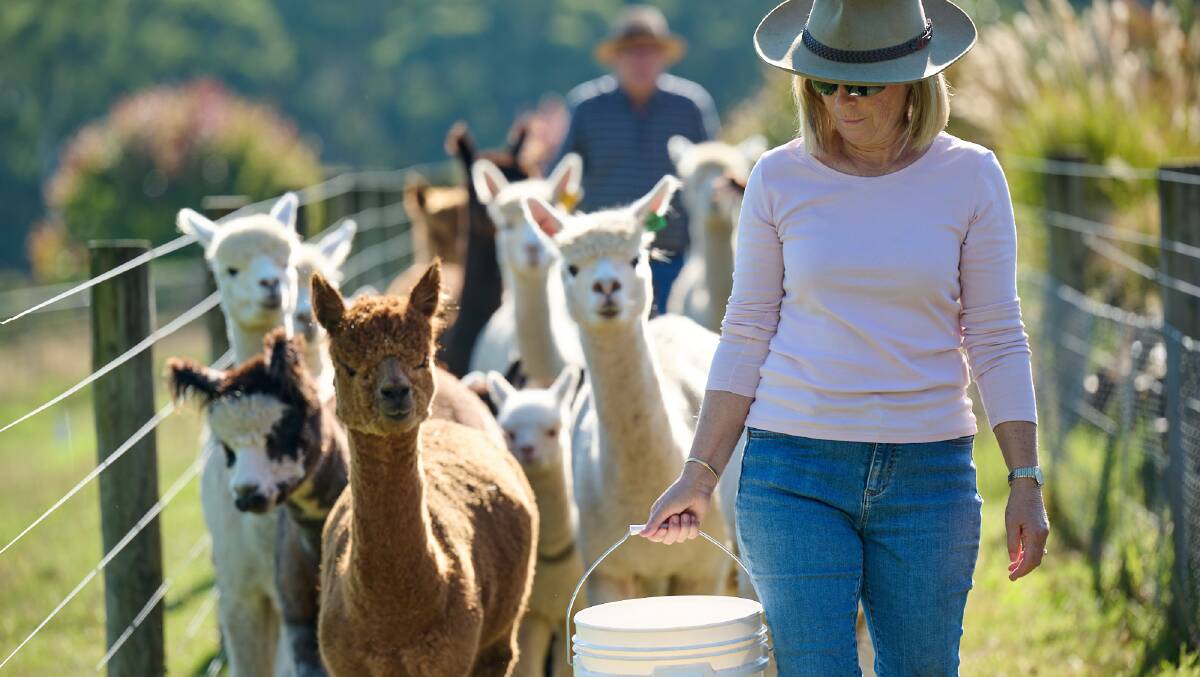
In the lead up to the Australian Alpaca National Show in Bendigo this weekend, alpaca fibre producers are eager to share their passion for what they believe could be a growing industry in Australia.
Australian Alpaca Association Victorian Eastern Region (VER) secretary and Auravale Alpacas stud principal Lynda Holdsworth said alpaca fleece recently had an increase in demand, despite not being nearly as commercially available as sheep's wool.
"From a commercial perspective, white alpaca fibre, whether it be Huacaya or Suri, it's extremely sort-after for all the obvious reasons."
"Its easily dyed, white is white and there's no shades in the colouring so it's easier to collect and it's commercially very viable, in all its microns."
With wool prices often varying and only three major large-scale buyers, she said for white wool, Waratah Alpaca Fibre quoted for their co-op members $28 per kilogram, for wool under 16 micron, but that varies for non-members.
Ms Holdsworth said from a farmer perspective, Auravale Alpacas sells their fleece clips half-and-half.
One half she sells as raw fleeces direct by social media and word-of-mouth to local weavers and spinners and the other half is sold to commercial entities for processing.
But for many of their members in the eastern region, she said often found it difficult to get fleeces processed on a smaller scale, considering most breeders she knows of have between 10 to 30 alpacas.
Fibre Naturally mini mill owner, and Glenavon Alpacas stud principal Gayle Herring decided to fill this gap 15 years ago and has had an alpacas for over thirty years.
She said she struggled finding suitable batches to send to a commercial mill to get the best quality product, so after some research, she began her own and said it had grown in popularity each year, despite it taking some time to process.
"It has taken off quite quickly, the downside of a mini mill is it takes so long to put fleeces through it, because were doing so many batches, but the upside is we can do small batches," Ms Herring said.
She's confident Australia has some of the best alpaca fleeces in the world, and could have potential for further industry growth, despite the cost of production, which she said is one of the bigger hurdles.
"I think manufacturing in Australia is hard, I understand why people send it overseas," Ms Herring said.


